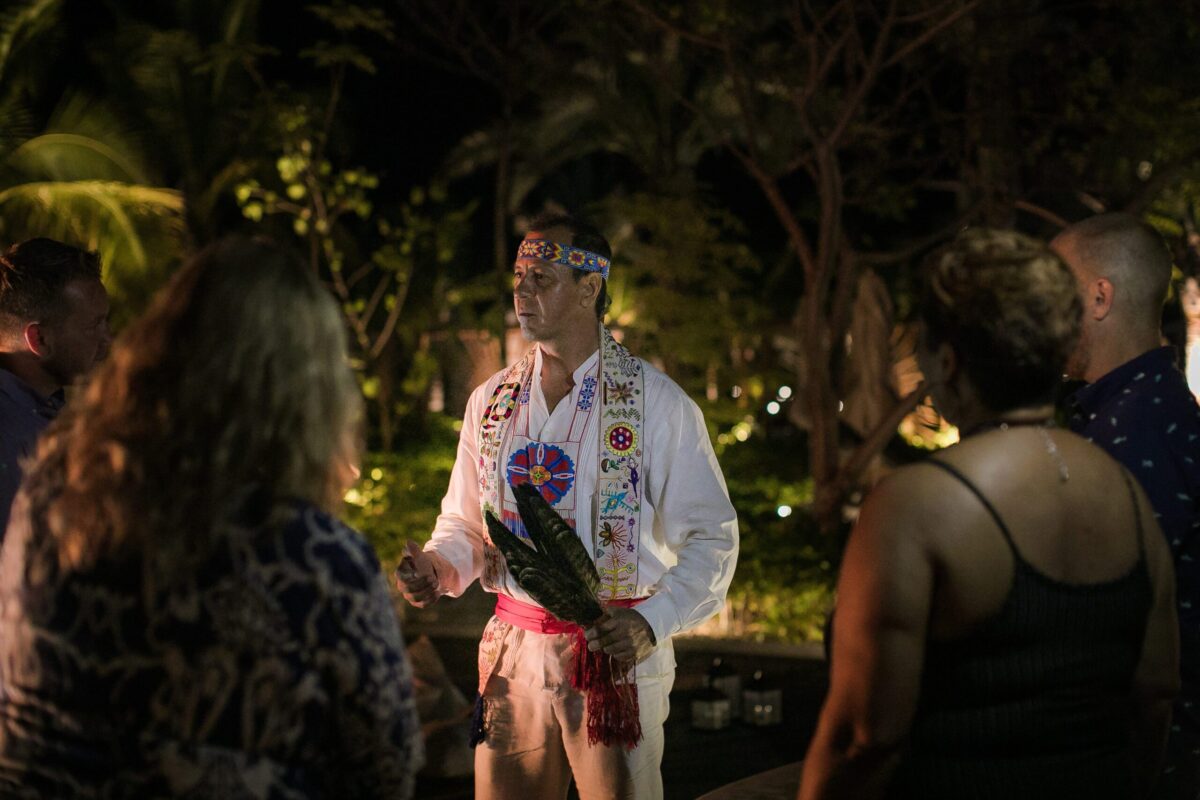Skift Take
Mexico has long been an attractive option for incentive groups as it offers an array of appealing experiences. Among the highlights are historic ruins, beachfront jungles, and rich cultural offerings. It’s not without obstacles; the perception of danger related to drug violence is tough to overcome.
“When considering destinations, whether international or domestic, it’s important to have your finger on the pulse of safety and security, as well as the overall social and political climate,” says Kate Patay, vice president of engagement, Terramar, a full-service event, destination, conference and meeting services company.
Local Knowledge Is Essential in Mexico
Terramar is a destination management company (DMC) that prides itself on being locally operated worldwide. “What that means for planners is that the team they work with in-market has deep roots and local connections, which saves time and resources,” says Patay. “Each destination has particular nuances that your team is familiar with and can help navigate, strengthening a planner’s effectiveness overall. Making sure your DMC team is locally based is crucial when creating partnerships.”
With this in mind, Terramar invested in a fleet of vehicles based in Los Cabos, Mexico, where its headquarters office is located. “It was not only to supply transportation for increased incentive travel but to have staffed vehicles instead of third parties. Safety is always a top priority for our team members and our clients. We consistently monitor any potential concerns to stay ahead of them.”
Pre-arrival communication is extensive, providing information related to any possible scenario. “We ensure everyone is comfortable and educated about the destination,” adds Patay.
Dedication Comes Through In Critical Moments
In April, protestors blocked Puerto Vallarta’s main highway, causing massive airport delays. Some travelers had no choice but to walk to the airport to catch their flights.
The timing of this protest couldn’t be worse for an incentive group staying at the Conrad Punta de Mita, which is about 45 minutes away, as it happened on departure day.
Terramar not only arranged for the group to get to the airport by bypassing the blockages by using back roads and alleys; some attendees were even transported by boat.
A DMC like Terramar becomes an extension of the planner’s staff on-site with boots on the ground. “The role of a DMC is more important than ever as planners are being tasked with doing so much more without additional resources,” says Patay.
Conrad Punta de Mita Embraces Its Roots
The Conrad Punta de Mita opened in Mexico in September 2020 without much fanfare due to the pandemic that shut down the world a few months later. That is starting to change as groups are discovering this property.
With 324 guestrooms, full buyouts are popular — an attractive option for groups with privacy concerns.
The local Huichol culture inspires the Conrad Punta de Mita. An Ojo de Dios, a protection symbol, takes center stage in the lobby. Indigenous traditions abound. Take the spa. There are outdoor thatched treatment rooms and an on-site sweat lodge where a Huichol shaman leads a two-hour, four-part sweat purification ritual complete with chants, song, and volcanic rocks smoldering in a central pit.
A Huichol cultural gratitude ritual kicks off the experience when walking into the resort’s fine dining restaurant, Codex. Before entering, a shaman clears energy using smoke from copal, an indigenous tree resin calling in the four points — north, south, east, and west.
Set in Riviera Nayarit, the resort’s location along the Pacific Ocean tucked in the Sierra Madre Mountains protects it from the damaging effects of hurricanes.
CSR Activities Help Acapulco
Terramar gathered a group of 30 meeting and incentive planners at the property in December to showcase the resort and destination.
Horseback riding, ATV adventures, and ziplining were among the activities offered to the group. Corporate social responsibility (CSR) was also part of the program. Attendees donated toiletries packed into care kits that will go to Acapulco.
“I have been doing this for 24 years, and in the first ten years, clients rarely asked for a community-focused activity. There has been a complete reversal. Now, most of our groups ask for such a program as they connect their people to the destination emotionally,” says Lisa DeLeon, vice president of global sales at Terramar.
In November, Hurricane Otis struck Acapulco, the strongest hurricane ever to hit the west coast of Mexico. Damage is catastrophic, and economic losses are more than $10 billion.
“Thousands lost everything in a matter of hours,” says Julia Trejo, vice president of business development, Terramar. “It is important we all work together to help.”
Trejo profoundly understands what it is like to live through a hurricane as she lived in Cabo San Lucas in 2014 when Hurricane Odile struck. She was without power for seven months.
“Imagine having no food, no water, no electricity, and then no work because tourism to your destination has stopped,” Trejo said.
Her empathy with Acapulco and its people led her to create CSR programs focused on helping those impacted. In addition, many hotels are hiring Acapulco workers until the city rebuilds.

